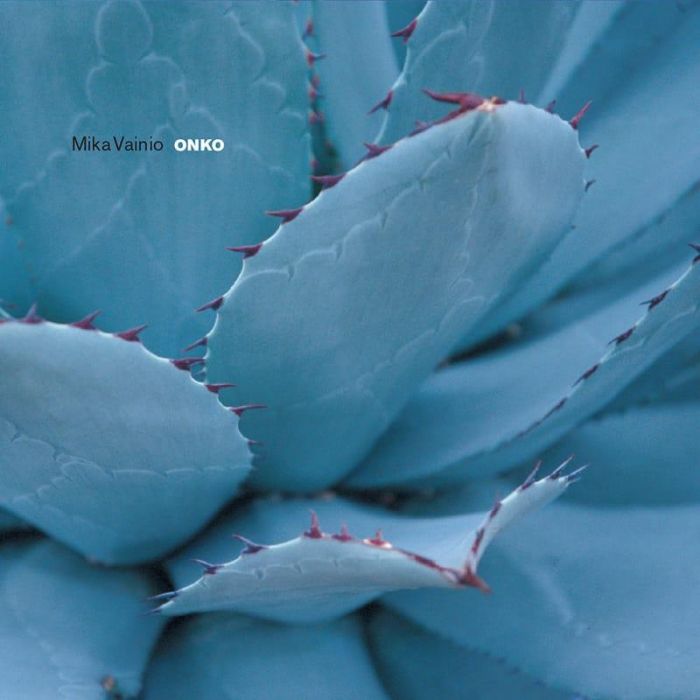Onko by Mika Vainio (Review)

Onko was originally released in 1997, as Mika Vainio’s first solo album for Touch. Vainio is perhaps best known for his work in minimal electro-soundsmiths Pan(a)Sonic. However, here Vainio presents an electronic album that is as minimal as can be (or pretty darn close), composed of low-frequency drones, beeps, static snaps and crackles, various hums and whirs, and other sonic doodles. Such sonic elements can create intriguing soundscapes that challenge the imagination and boggle the mind.
Suffice to say, neither one of those reactions are stirred up by Onko. Even fans of this stuff might find their patience tried as they try to make their way through Onko’s 67 meandering minutes.
It’s not surprising that the title track was originally recorded for use in an “art happening,” as the entire album has that feel. I think the widely spaced tones, echoing shuffles, and reverberating tick-tocks would provide a suitable backdrop for something you’d find at the MOMA. Perhaps an installation composed of odd bits and pieces of circuitry, cathode ray tubes displaying nothing but blobs of green static, melted Pentium chips, and the innards of a dozen Casio keyboards all pulsing and throbbing together in an attempt to explore the role of decrepit technology in today’s fast-paced society.
In a context like that, I could see Onko providing some interesting auditory backdrops that enhance the experience of exploring the installation. But, like a mediocre movie soundtrack stripped of its visuals, the track quickly becomes monotonous when heard on a CD. Vainio shifts directions at will throughout the track’s 11 movements, employing answering machine beeps and modem noises one minute while creating a dense thicket of static bursts and crackles the next. However, nothing of real import or depth ever emerges as the sounds never coalesce into anything with any real substance or meaning.
At times, you might hear something vaguely fascinating, such as the trumpet-like noises wheezing off in the distance at one point. But those are few and far between, and often come only after the listener strains to hear something worthwhile (an endeavor that quickly grows tiresome). More often than not, Vainio simply throws out a hodgepodge of sounds that, at best, are interesting for the first minute or so and then fade nicely into the background. At worst, they’re capable of inducing migraines.
The only respite comes at the very end of Onko, as the title track’s drones slowly peel away and reveal an echoing knock that bounces from left ear to right ear (if you’re listening on headphones, that is). It’s actually refreshing to hear a definite rhythm, even one this simple, because it provides the recording with some much-needed structure. Eventually, a delicate, wavering tone begins to slip towards the foreground, creating the disc’s first beautiful, emotionally resonant moment. And you pray to God that Vainio doesn’t ruin this one single moment by throwing another jumble of electronic clicks and whirs.
Surprisingly, Vainio ends the disc in a similar manner. “Viher“ ‘s soft, gauzy palette of drones and static washes creates a contemplative mood that feels far more interesting and rewarding than the rest of the disc combined. Of course, that impression is relative. After wading through 45 minutes or so of Vainio’s composition, you’re simply thankful that something interesting has emerged from the tedium.
And just how tedious does it get? Let’s put it this way. I was listening to this disc at work one day when one of those freak Midwestern thunderstorms appeared out of nowhere. For several minutes, the entire office echoed with the sound of a million raindrops striking the building’s metal roof. After trying to make it through one of Onko’s movements, I finally gave up, took off the headphones, and instead, just listened to the gentle lull of the rain.